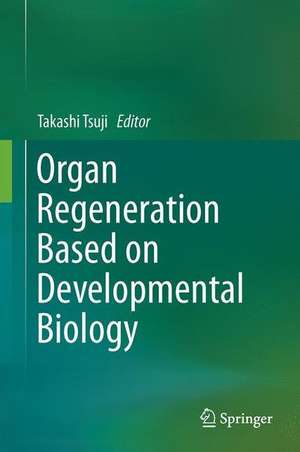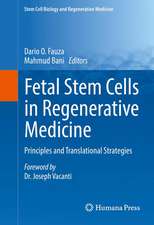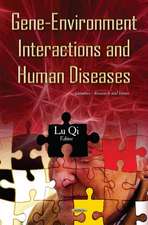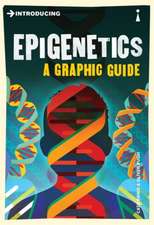Organ Regeneration Based on Developmental Biology
Editat de Takashi Tsujien Limba Engleză Hardback – 10 apr 2017
| Toate formatele și edițiile | Preț | Express |
|---|---|---|
| Paperback (1) | 997.09 lei 3-5 săpt. | |
| Springer Nature Singapore – 9 sep 2018 | 997.09 lei 3-5 săpt. | |
| Hardback (1) | 1007.17 lei 3-5 săpt. | |
| Springer Nature Singapore – 10 apr 2017 | 1007.17 lei 3-5 săpt. |
Preț: 1007.17 lei
Preț vechi: 1228.26 lei
-18% Nou
Puncte Express: 1511
Preț estimativ în valută:
192.74€ • 200.01$ • 161.10£
192.74€ • 200.01$ • 161.10£
Carte disponibilă
Livrare economică 22 februarie-08 martie
Preluare comenzi: 021 569.72.76
Specificații
ISBN-13: 9789811037665
ISBN-10: 9811037663
Pagini: 329
Ilustrații: XIII, 257 p. 67 illus., 64 illus. in color.
Dimensiuni: 155 x 235 x 20 mm
Greutate: 0.65 kg
Ediția:1st ed. 2017
Editura: Springer Nature Singapore
Colecția Springer
Locul publicării:Singapore, Singapore
ISBN-10: 9811037663
Pagini: 329
Ilustrații: XIII, 257 p. 67 illus., 64 illus. in color.
Dimensiuni: 155 x 235 x 20 mm
Greutate: 0.65 kg
Ediția:1st ed. 2017
Editura: Springer Nature Singapore
Colecția Springer
Locul publicării:Singapore, Singapore
Cuprins
Preface.- 1 Generation of various telencephalic regions from human embryonic stem cells in three dimensional culture.- 2 Self-organized cerebellar tissue from human pluripotent stem cells and its application to clinical medicine.- 3 Functional Pituitary Tissue formation Recapitulating hypothalamus and pituitary development using ES/iPS cells.- 4Inner Ear Organoids: Recapitulating Inner Ear Development in 3D Culture.- 5 Functional Tooth Regeneration.- 6 Functional Hair Follicle Regeneration.- 7 Functional salivary gland regeneration.- 8Functional Lacrimal Gland Regeneration.- 9 Generation of Gastrointestinal Organoids derived from Human Pluripotent Stem Cells.- 10 Early kidney specification and its recapitulation by pluripotent stem cells.- 11Recapitulating development to generate kidney organoid cultures.- 12 Liver Regeneration using Cultured Liver Bud.- 13 Development and Bioengineering of Lung Regeneration.
Notă biografică
Takashi Tsuji
Laboratory for Organ Regeneration, RIKEN Center for Developmental Biology, Kobe, Japan
Laboratory for Organ Regeneration, RIKEN Center for Developmental Biology, Kobe, Japan
Textul de pe ultima copertă
This book reviews three-dimensional (3D) stem cell culture and proof of concept for organ regeneration. The chapters present studies based on developmental biology but not tissue engineering using bio-degradative scaffolds. The ultimate goal of regenerative therapy, the next generation of regenerative therapy, is to develop fully functioning bioengineered 3D organs that can replace lost or damaged organs following disease, injury, or aging. Next-generation regenerative therapy will consist of organ-replacement regenerative therapy, which aims to reproduce reciprocal epithelial and epithelial interactions and epithelial and mesenchymal interactions that occur during embryogenesis. The book then discusses the generation of several 3D functional organs and organoids such as brain, inner ear, tooth, hair, salivary glands, lacrimal glands, gastrointestinal organs, kidney, liver, and lung. This work will appeal to a wide readership such as medical scientists, developmental biologists, clinicians, and patients. The volume provides valuable information and ideas to form a next-generation field of science.
Caracteristici
Provides upcoming trends of organ regeneration as next-generation regenerative medicine Presents detailed descriptions of the principle and proofs of concept of a wide variety of organ regeneration Deepens the understanding of developmental biology for organogenesis Includes supplementary material: sn.pub/extras









